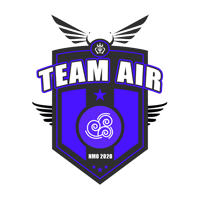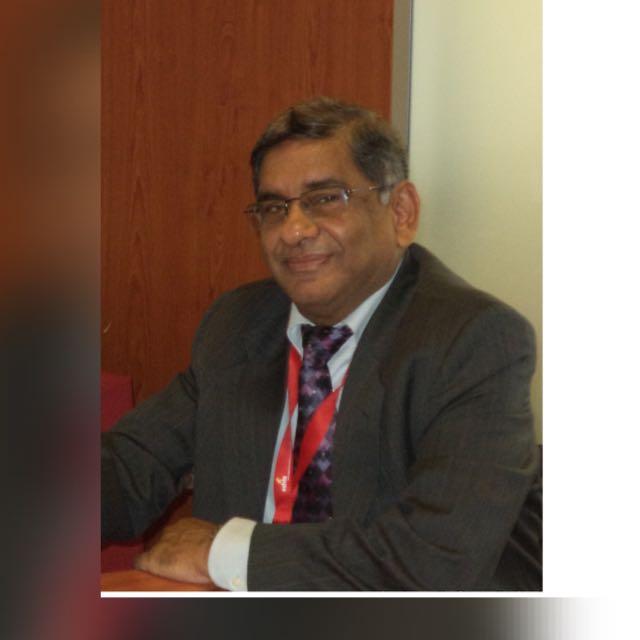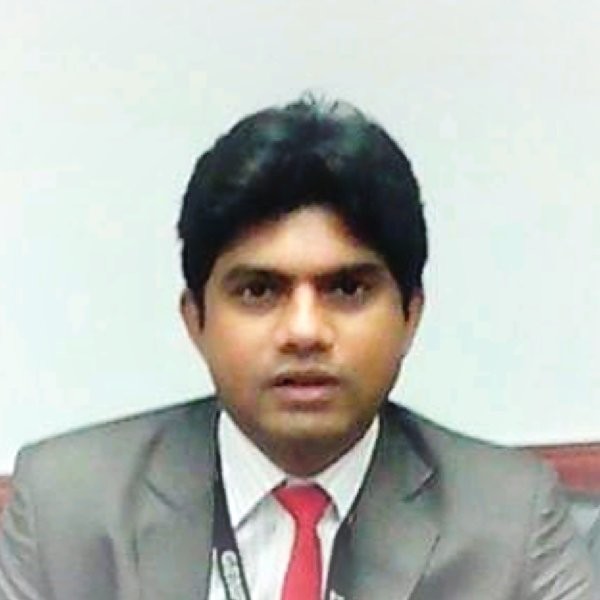
Announcement
SEMI FINAL | BUSINESS CASE - BCS 05
Leader Submission BCS 05
NMO 2020
Comprehensive Plan Regarding Financials, Product Offerings and Expansion for Vayu, the start-up focused in manufacturing of two-wheeler electric scooters.
Submission Date & Time : 2020-04-11 04:26:22
Submitted By: Soumyajit Ghosh - Leader From Team Air
Assignment Taken
Provide a detailed overview of the Financial target, Product Mix & Expansion Plan for Next 5 YearsCase Understanding
From the case outline, the following problems are identified that the start-up currently experiencing: Financial • Fund constraint- Vayu requires funding • To utilize the existing fund to make one model from the prototype – requires bootstrapping • To make an appropriate financial plan so that the collected fund is enough to meet expenses- it requires good forecasting of future expenses and planning Product • Decision dilemma of whether to venture two/three/four-wheeler space- analyzing market trend and competitions and inclination of Indian Govt. • The number and variants of model- Vayu has to make proper segmentation and targeting and should target the unserved customer pool Competition • Competition with established players like Hero, Toyota, Bajaj which have deep pockets and well-funded start-ups like Tork, Ather Energy- it requires innovative features and strong value proposition which has the potential to attract customers • Decision to come up with features meeting and exceeding customer expectations- it is required to beat the competition Team • Lack of business knowledge due to inexperienced team- it requires knowledge enhancement, taking references from other business scenarios across the world and taking on board experienced professionals during post-funding period. Market Entry • The city to start with- Vayu should decide the city which offers investment friendliness and have affluence of target customers • To decide on outsourcing opportunity in distribution- Vayu should analyze its own competency • To decide on probable partnerships- Vayu Future Growth • To come up with future growth and expansion plan ensuring good return on investment to the share-holders.BCS Solution Summary
The solution to the problems identified are spread across departments and highlighted through all assignments together. In this solution, we have first outlined the underlying management principles followed by introduction of company, overall objectives, financial target, product mix, expansion plan. This startup, called Vayu, consisting of 8 team members would like to enter the market with two models of electric two-wheeler scooters- Elektra and Elektra+ priced Rs.65000 and Rs. 100000 respectively. In future it has planning to launch another variant-Elektra Delivery dedicated to delivery executives of e-commerce companies. Vayu does not want to come up with too many variants so that it does not lose focus and positioning and customers do not get puzzled. The vehicles will have many features which will be seen in India for the first time. Vayu will launch at Hyderabad due to favorable conditions and Govt policy support and targets to cover 8 Tier 1 cities and 12 Tier 2 cities within three years of starting manufacturing. Vayu will deploy exclusive dealership model for distribution and sales. The whole financial need of Vayu is envisaged to be met in three steps: First own fund (and bank loan), then investment from Angel investor and then Venture Capital. From VC, Vayu will need around Rs.110 Cr to be used for new plant and manufacturing set-up, R&D, setting up charging infrastructure, marketing expense.Solution
Management Principles Followed:
- Vayu will initially resort to bootstrapping to minimize cost and liabilities
- Vayu will target aggressive expansion in first years of operations.
- Vayu will not diverge into too many products at the same time to keep the focus right and use the resources in efficient way.
- Vayu will try to introduce features and some innovations in components those are used in India for the first time. Vayu will file patent for that too.
- This startup will invest in training of manpower as it believes them to be the best resources
- Vayu will follow resource-based strategy which means it will focus only on it’s core competencies like designing the scooter, innovation in components, marketing etc. and will either form partnership or outsource with other companies for other activities like sales, manufacturing of components etc.
Introduction About The Company:
Vayu is a start-up consisting of eight dynamic, ambitious and hardworking team members who as a team dreams of changing the electric vehicle landscape of the country. The team is focused into developing two-wheeler electric scooters with state-of-the-art features at affordable price. The name of the start-up signifies fast and flexible like air. The model names depict the smartness through electric system. The tagline of “Ab Smart Hoga India” denotes the effort made by the team to help India gain the leadership position in the worldwide revolution towards electrical vehicles and at the same time the smart features embedded in the scooter.
The long-term focus is to be the largest and most admired electric two-wheeler maker of India in a sustainable energy efficient way.
The start-up aims at launching two models- Electra and XX. Both the models are not constrained to any gender. Elektra+ is a premium model that targets the young to middle age tech-savvy customer, belonging to Social Economic Category A1, A2, A who would want to portray this scooter as a part of their style statement and would enjoy fast rides with their near and dear ones. On the other hand, the model Elektra is perfect example of conjunction of efficiency, smartness and affordability. Common people, who wants an economic ride with latest functionalities. The targeted customer segment would be college goers, other people belonging to Social Economic Category B1, B2, B.
The primary objective of the company is to secure VC funding to arrange enough money for R&D, manufacturing and marketing expenses.
Objectives
Financial:
- To attract a minimum of 700 customers per month in the first year of sale and minimum sales of 12000 units
- To capture market share of minimum 5% in first year of operation and minimum 15% by third year of manufacturing in electric scooter segment
- To offer a scooter with unique features and outstanding services at a reasonable price- customer satisfaction would be measured by minimum 100 percent yearly sales growth during first three years of sales and minimum 50% thereafter for next 3-5 years.
- To achieve customer complaints less than 1 percent.
- To generate positive cash flow from operations
Product:
- To offer first of its kind features in Elektra Plus to delight the premium segment and to offer enough features with Elektra to exceed the expectation of customer segment
- To add multiple variants of scooters to the portfolio after post launch market research of Elektra and Elektra Plus
Expansion:
- To cover all Tier 1 cities with 2 years after starting manufacturing
- To expand to minimum 20 cities by third year of sales (i.e. 5 years from now)
Market Share Projection
Okinawa sold 45,000 electric two-wheelers in 2018-19 and had a market share of 40-45% in the segment which tells the total market size to be around 100000 units in 2018-19. This is expected to grow at around 37% CAGR till 2023. But there is a dip in sales due to FAME-II regulations during 2019-20. Considering that, the sales growth in 2019-20 and 2020-21 are assumed to be 15% and 25% respectively instead of 36%. Thereafter the sales growth is assumed to be 36%. Hence, projected sales at the end of 2021-22 would nearly be 2.8 lakh units.
Vayu aims to capture 5-6% of market share at the end of first year of sales and 10-12% market share at the end of 2nd year of sales and 18-20% at the end of 3rd year of sales (i.e. 5year from now)
Sales Forecast:
- We assume Elektra+ sales as 20% of Elektra Sales in metro cities and 15% in Tier 2 cities
- Sales growth in a city is assumed to 10% y-o-y
The sales unit and revenue is demonstrated below:
Forecasted sales unit at the end of 3rd ,4th and 5th year are 13536,41112,92081 respectively. Revenue are Rs.88 Cr, 267Cr and 598 Cr respectively.
Source of Funding:
- Own investment- 48 lac
- Angel Investor- 2.5 Cr
- Venture Capital -110 Cr
Vayu aims to bootstrap for initial one year post which it wishes to raise funds for manufacturing.
Vayu aims to get funded by any automobile company in the country so that it can leverage the following:
- Distribution Network
- R&D Expertise
- Experienced Management in automobile industry
Cashflow and Profitability:
- According to estimates, this start-up is expected to maintain a healthy financial position over the next five years.
- Our company is expected to break-even in the 4th year from now and 1.5 years of operations.
- We expect to be profitable in the second year of operations, with profits increasing over the next four years, as we establish and increase our customer base.
- Our one focus will be to have enough cash on hand to meet our payment obligations and be prepared for unexpected needs of cash.
- We target achieve breakeven sales within 4th year from now
- We wish to take minimal funding from VCs in exchange of minimal share
Major Investments required:
We envisage to deploy good amount of investment in the following areas once we get the funding over the 5 year duration.
- New Plant Set-up for increased capacity from 5th year onwards (Around Rs.200 Cr)
- Building up charging infrastructure (Around Rs.50 Cr)
- R&D (Around Rs.50 Cr)
- Making experience centers (Around Rs.10 Cr)
- Marketing expenses (including brand building though promotional activities) (Around Rs.10 Cr)
Given the profits, we need around Rs.110 Crore from investor.
Product Mix:
The philosophy behind our product mix is not to divert focus by going into too many variants for coming 3-4 years. Vayu planned to launch two variants of scooters- both targeted to two different customer segments.
Since Elektra Plus is targeted to customers with higher purchasing power, it would not be good to simultaneously the lower segment of market as it might dilute the brand positioning.
Accordingly, our product mixture is given as below:
Year 1: Pilot project to produce first model (for demonstration to get VC funding)
Year 3: Both The premium model Elektra+ (the smart one targeting the people from SEC A,A1,A2) and The model , Elektra, targeted to customers from SEC A,A1,A2
Year 5 or 6: The model Elektra Delivery with higher space conducive for delivery executives
Elektra+:
Elektra+ is a premium model that targets the young to middle age tech-savvy customer, belonging to Social Economic Category A1, A2, A who would want to portray this scooter as a part of their style statement and would enjoy fast rides with their near and dear ones. Elektra+ comes with many new features those are first time used in the country. For e.g. Lithium Titanium Oxide non-flammable battery technology for very fast charging, Vehicle Management System, Anti-Theft System etc. It will be a smart vehicle with integration with a dedicated app. The charging time is way less than competitors without compromising the mileage. The price will be Rs. 1lac.
Elektra:
The model Elektra is perfect example of conjunction of efficiency, smartness and affordability. Common people, who wants an economic ride with latest functionalities. The targeted customer segment would be college goers, other people belonging to Social Economic Category B1, B2, B. This model will be far ahead of its competitors in terms of features, performance at extremely competitive price.
Elektra Delivery:
In year 5/6, there will be a dedicated scooter with higher boot space and extra carrier for delivery executives keeping in the mind the rapid e-commerce growth in India (The Indian e-commerce market is expected to grow to US$ 200 billion by 2026 from US$ 38.5 billion as of 2017). This model will have dedicated GPS system, heavier weight etc. to cater the needs of delivery executives. The price will be decided on the basis of actual cost incurred.
Charging Infrastructure:
Vayu understands that for electric vehicles, development pf charging system is very important. Hence, in each city in which Vayu enters, about 100 charging stations will be installed in one year of operations.
The charging points, which will be installed at malls, prominent restaurants, tech parks, multiplexes and gyms. Vayu aims to invest 50-75 Cr for this purpose.
Conjoint Analysis to determine most important features to customers
'Conjoint analysis' is a survey-based statistical technique used in market research that helps determine how people value different attributes (feature, function, benefits) that make up an individual product or service.
A primary research has been carried out by our team to find out most important features. We used three variants of mileage (or range) viz. 75km, 90km, 100km, three variants of charging Time viz. 3 hours, 4 hours and 5 hours and three variants of price viz. Rs. 80k, 100k, 115k and speed of 60km/hr and 80km/hr - thus giving rise to total 3*3*3*2=54 variants. From orthogonal analysis, we reduced these 54 variants to 11 variants.
We did not add more variables as it would have increased the number of options to the survey respondents.
We got 43 responses (average age- 32, avg. income level- 40k/month, around 45% women and average education- graduation).
The mains finding of conjoint analysis are-
- Charging time is the most important attribute followed by mileage and price among these three variables.
- 3 hours charging time (or less) is most desirable.
- Respondents mostly want range of 90km
- 80km/hr speed is not desired probably considering movement within city.
We used this analysis to design our model.
Expansion Plan:
Vayu wants to start manufacturing and sales from Hyderabad. The rationale is given below:
Why Hyderabad:
Favourable Govt.(Telangana) EV Policy
- Road tax exemption for all-electric vehicles till 2025.
- Registration exemption for all-electric vehicles till 2025.
- Adoption of Electric vehicles in taxi services, public transport, and institutional transportation.
- Free Parking for EVs in public parking places and Toll exemption on State Highways till 2025
Govt. Efforts and Mandates towards electric vehicle adoption
- Making Mandatory to Corporate offices with an annual turnover of Rs 100+ Crore operating within GHMC limits to migrate 25% of their employee commuting fleet to EVs by 2022 and 100% by 2030.
- Encouraging e-commerce delivery services to migrate 25 % of their vehicles to EVs by 2022 and 100% by 2030.
Govt. Efforts in building electric vehicle infrastructure
- The government will set up first 100 fast charging stations in GHMC and other cities in a phased manner.
- Charging points for personal vehicles of Government employees would be provided at Government office parking lots, starting with Hyderabad, followed by other cities.
- EV charging stations/ infrastructure at public places such as airports, railway/ metro stations, parking lots, bus depots, markets, and malls.
- Motivating Apartment associations with 200+ families will be encouraged to provide charging points in parking lots and will be supported by a capital subsidy of up to 25%, capped at 5 lakh.
Availability of Target Customer segment
- Our target segment for Electra (the premium model) is people from age 27-45 belonging to SEC A,A1,A2. Hyderabad being developed as IT hub, there are many people who migrated from other cities and doing well-paid job. They are conscious about social status, fashionable and tech savvy and would appreciate our scooter.
Expansion Strategy:
Vayu will target aggressive expansion post manufacturing for initial 3-4 years to ride the electric vehicle wave in India. It will start sales in Hyderabad in Quarter 1 of 3rd year from now (FY 2022-23). It will not expand to any other cities in quarter 2 also. The rationale behind that is to hold on and see the market acceptance of the scooters and based on the feedbacks, it will have the opportunity to improve in all areas.
Year 3, Q1 and Q2 Sales in Hyderabad only
Year 3, Q2 onwards: Expand one metro city each quarter
Year 5: Complete covering all metro cities and around 12 tier 2r cities
Hyderabad -> Chennai -> Pune -> Mumbai -> Kolkata ->Delhi-> Ahmedabad->Bangalore
We will expand in one metro city in one quarter. Only
Next targets will be Tier 2 cities.
Year 5, Q1: Amritsar, Coimbatore, Kota
Year 5, Q2: Bhopal, Chandigarh, Goa
Year 5, Q3: Vizag, Varanasi, Lucknow
Year 5, Q4: Kochi, Jamshedpur, Baroda
Distribution Plan:
Since distribution and sales is altogether a different job as compared to design, innovation and assembling, Vayu would like to keep it outsourced.
Vayu will follow exclusive dealership model where we will accord the responsibility of selling Elektra and Elektra + to local entrepreneurs. They would be independently running promotional activities at local level.
Initially we would like to have 10 dealers per city which would increase as we expand and the sales rise.
Within three years of starting sales (i.e. 5 years from now) we have a target of 250 dealers across 20 cities.
Experience Centre:
Vayu will have an experience center in each city as we go on expanding. This experience center will give the customers the opportunity to feel the vibrance of the new age scooters produced by us.
NOTE: All the associated table are given in the attachment. Please refer that.
Conclusion
From the financial target, product offering and expansion plan, it is evident that Vayu is eyeing aggressive expansion without hampering the financial health of the company and diluting much share to the investors. Vayu is expected to see itself in a prominent spot after 5 years of operation from now.Attached File Details
Comments

Dr Saroj Kumar Dutta
Well structured Submission with clear plan of action. Choosing Hyderabad as city for manufacturing is a wise decision. Great Effort

Karn Kumar
Where have you collected these data from? Its just a great work. This is very similar to a Ready Made market research study, ready to be sold. You are ready for a consultative role or Market Research Expert.
Participant
Soumyajit Ghosh
IIM Bangalore
Entrepreneurial by the mindset and hard-working by nature, Soumyajit Ghosh believes himself to be an energetic, enthusiastic, and honest person who completed his MBA from IIM Bangalore in 2020.At IIM Bangalore, he won several case competitions (Campus as well as National level) like Flipkart Wired National Winner, ITC Interrobang Campus Winner, etc. to name a few. He has also been nominated as one of Top 100 Competitive Business Leaders of the country in 2019-20 by Dare2Compete.Prior to IIMB, he has rich work experience of 47 months at GAIL(India) Ltd as Senior Engineer (Operations). Soumyajit earned a B.E. in Chemical Engineering from Jadavpur University (Rank 3rd) in 2014. Soumyajit also enjoys graphology, equity trading etc. and has honed his interest by certifying himself as Equity Research Analyst from NISM and Technical Analyst from FLIP.
Team Sky BCS 05 Submission
Total Team Points: 39806.5
Team Air BCS 05 Submission
Total Team Points: 38397
Team Fire BCS 05 Submission
Total Team Points: 36238























